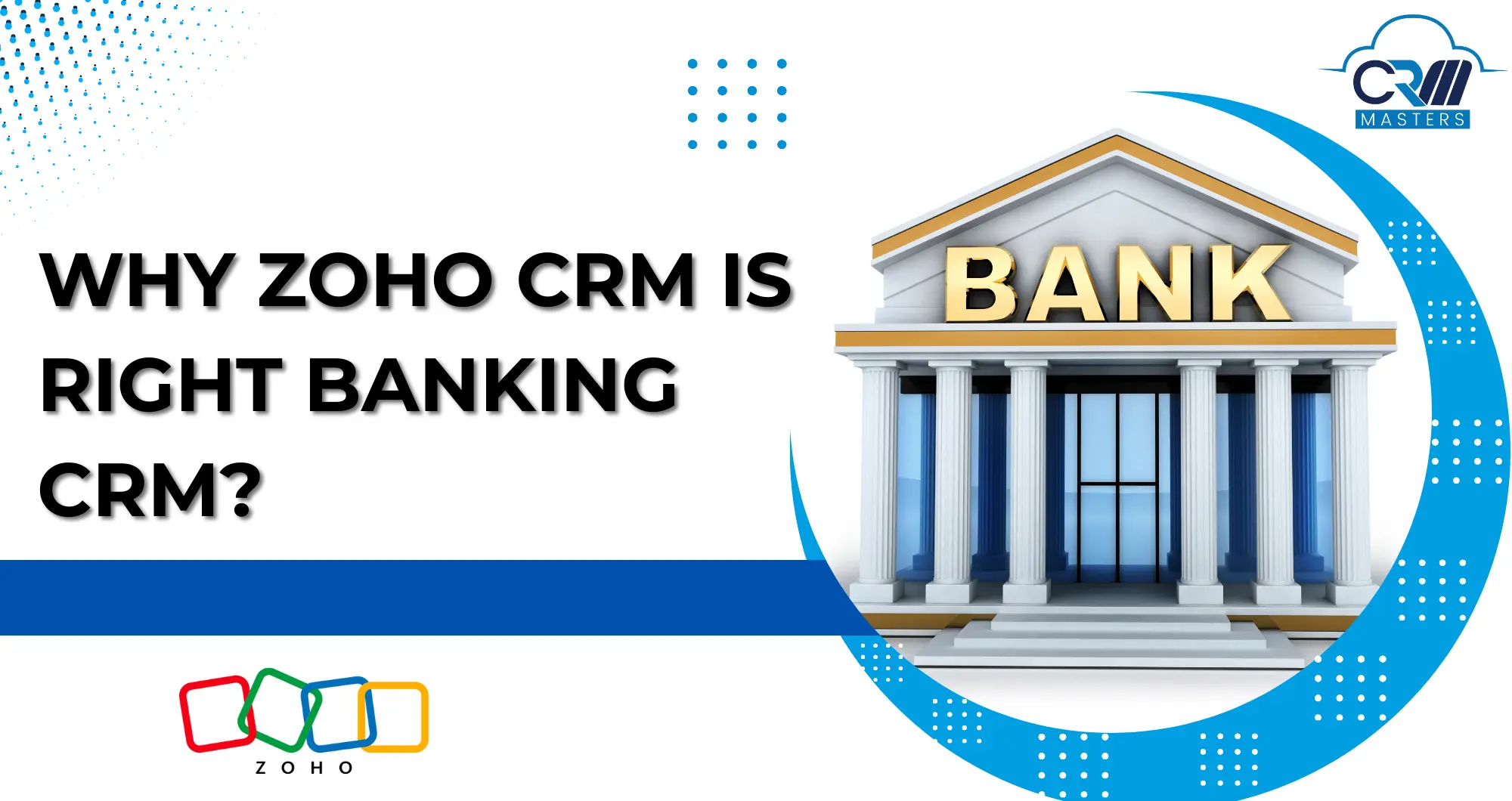
Top 5 Best CRM Software for Banks in 2025
Understanding your customers is no longer a competitive advantage in banking, it’s the foundation of survival. With financial services becoming increasingly competitive and customer expectations continuously rising, banks must evolve to meet these demands. One of the most effective ways to do so is by adopting a robust customer relationship management system.
A CRM system designed for the banking sector can help institutions better understand their customers, streamline operations, and deliver tailored financial products and services. From managing customer accounts to enhancing internal collaborations, a robust CRM system enables banks to deliver improved experiences that foster trust and loyalty.
In this blog, we will explore the benefits of implementing a CRM in banking, key features to look for in a banking-specific CRM system and the top 10 leading CRM for the banking sector.
Why Banks Need CRM Software in 2025
The banking industry is undergoing a significant transformation, driven by the rise of digital banking, customer experience for personalised services, and the need for operational efficiency. With the increasing volume of data generated by customer interactions, banks need a robust system to manage this information effectively.
CRM system provides banks with the tools to collect, analyze, and act on customer data to create meaningful connections. A well-integrated CRM enables banks to effectively manage customer accounts, track service requests, and offer targeted financial products, ultimately leading to increased customer satisfaction and loyalty.
Benefits of Using CRM in Banking
1. Enhanced Customer Satisfaction
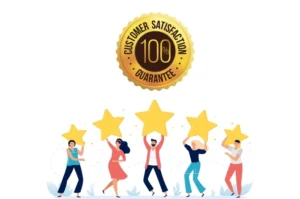
A CRM system allows banks to collect and store detailed customer information, such as transaction history, preferences, and behavior patterns. With this data, banks can provide a personalized experience, offering services and products tailored to individual needs. For example, a bank can recommend specific loan products, credit cards, or investment opportunities based on a customer’s financial profile.
2. Improved Customer Retention
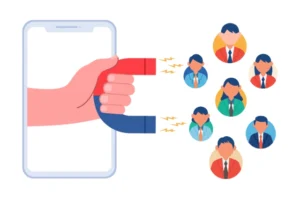
In the banking sector, retaining customers is as important as acquiring new ones. CRMs provide banks with valuable insights into customer behavior, helping identify at-risk customers who may be considering switching to a competitor. By proactively addressing their concerns, offering personalized solutions, and maintaining regular communications, banks can improve customer loyalty and reduce churn.
3. Better Sales and Marketing

CRM systems provide banks with powerful analytics tools that allow them to track and measure the effectiveness of their marketing campaigns. By understanding customer segments and preferences, banks can target marketing efforts more accurately, improving conversion rates and generating higher ROI on marketing investments.
4. Regulatory Compliance
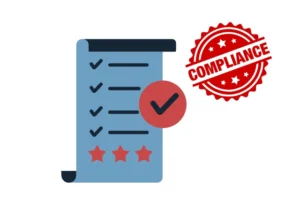
Banking is one of the most highly regulated industries in the world. A CRM can help ensure that all customer interactions are documented and compliant with industry regulations. By maintaining an audit trail of communications, transactions, and customer feedback, banks can easily meet legal requirements and avoid costly fines.
5. Increased Efficiency and Productivity
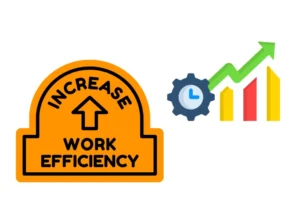
CRM systems reduce manual workloads by automating many routine tasks, such as data entry, follow-up reminders, and report generation. This frees up the bank employees to focus on higher-value activities, such as relationship building and strategy development, to increase overall productivity.
Key Features of Banking CRM Software
While evaluating CRM systems for the banking sector, it’s important to look for specific features that can address the unique needs of financial institutions. Here are the top features to prioritize.
1. Omnichannel Support
Customers interact with banks through a variety of channels, including mobile apps, websites, social media, and in-branch visits. A CRM that supports omnichannel communications allows banks to track and manage these interactions seamlessly. This ensures that customer service teams have a complete view of every touchpoint, leading to more efficient and personalized services.
2. Customer Data Management
A robust banking CRM should allow banks to capture, store and analyze a wealth of customer data, including personal information, transaction history, communication preferences, and more. The ability to segment customers based on various criteria (for example, financial goals, transaction patterns) enables banks to offer highly personalised experiences, services and products.
3. Sales and Marketing Automation
Automating sales and marketing processes is a key advantage of CRM systems. Banks can set up automated workflows for tasks such as lead nurturing, follow-ups and targeted marketing campaigns. This reduces the time spent on administrative tasks and ensures that customers receive timely, relevant information.
4. Advanced Analytics and Reporting
A CRM with advanced analytics tools allows banks to gain deeper insights into customer behavior, market trends, and sales performance. Customizable dashboards, predictive analytics, and real-time reporting help banks make data-driven decisions, optimize operations and improve service delivery.
5. Compliance and Security
Given the sensitive nature of financial data, security is paramount in any banking CRM system. Look for CRM platforms that offer strong encryption, multi-factor authentication, and robust data protection measures to ensure compliance with industry regulations such as GDPR and PCI-DSS.
6. Integration With Banking Systems
A banking CRM must seamlessly integrate with other core banking systems, such as loan management, account management, and payment processing platforms. This integration ensures that customer data flows smoothly across systems, minimizing errors and improving operational efficiency.
7. AI-Powered Insights
Artificial intelligence capabilities, such as predictive analytics and machine learning, can enhance CRM functionality in the banking sector. AI-driven insights help banks anticipate customer needs, identify cross-sell or upsell opportunities, and automate tasks like fraud detection and customer service inquiries.
Top 5 Leading CRM for the Banking Sector in 2025
Here are ten of the best CRM platforms for the banking sector, each offering a unique set of features that can enhance customer relationships, streamline operations, and boost productivity.
1. Zoho CRM – Affordable & Customizable CRM for Banks
Zoho CRM is known for its user-friendly interface and affordable pricing. It offers customizable solutions for the banking industry sector, including automations of tasks, customer segmentation, and lead management. ZOHO CRM also integrates well with a variety of third-party applications.
2. Salesforce Financial Services Cloud – Enterprise CRM for Banks
Salesforce is one of the widely used CRM platforms globally, and its Financial Service Cloud is specifically designed for the banking industry. It provides a comprehensive 360-degree view of customer data, with tools for wealth management, customer service and compliance.
Also Read:- Salesforce CRM For the Banking Sector
3. Microsoft Dynamics 365 – Data-Driven CRM for Financial Institutions
Microsoft Dynamics 365 offers a robust suite of tools that help banks manage operations, automate workflows, and provide personalised services. Its deep integration with other Microsoft products, such as Office 365 and Power BI, makes it a popular choice for many financial institutions.
4. HubSpot CRM – Best Free CRM for Small Banks
HubSpot CRM is a powerful platform that can be ideal for smaller banks or those just starting to explore CRM technology. It offers lead management, email tracking, and analytics features that help banking teams nurture customer relationships efficiently.
5. Pega CRM – Strong Compliance & Workflow Automation
Pega CRM provides an advanced suite of tools for sales automation, marketing campaigns and customer support. Its flexibility and ability to be tailored to specific banking needs make it a great option for banks seeking a customizable CRM solution.
Challenges Faced by the Bank with the CRM Software
1. High Implementation Costs
One of the main challenges for banks using CRM software is the cost. Many options, especially big platforms like Salesforce or Microsoft Dynamics, have high fees for licenses, setup, and ongoing changes. For smaller banks and credit unions, these costs can be too high compared to the benefits, making them unsure about investing in CRM.
2. Security and Data Privacy
Security is very important in managing customer relationships for banks. They deal with sensitive information like income details, ID documents, and transaction histories. While many bank CRM systems promise security, not all meet the strict requirements of financial institutions. Choosing a CRM without strong encryption, controlled access, and compliance features can put banks at risk.
3. Poor Adoption
Even the best CRM can fail if the staff don’t use it well. Many CRM systems are complicated, needing long training sessions, which can lead to low usage rates. If relationship managers and customer service agents see CRM as a burden instead of a helpful tool, the bank won’t get value from its investment.
4. Limited Customization
Banks offer a wide range of products and services, from everyday banking to private wealth management. Generic CRMs often have trouble adapting to specific tasks, like tracking private banking relationships, investment advice processes, or onboarding high-value clients. Without customization, these systems can feel limiting and force banks into a “one-size-fits-all” approach.
Why Zoho CRM is the Right Banking CRM?
While many CRM platforms have challenges like high costs, poor adoption, and complex integrations, Zoho CRM offers a more streamlined and accessible solution, especially for small to mid-sized banks and credit unions. Here is how it addresses the key issues:-
1. Affordable and Scalable Prices
Zoho CRM is known for its cost-effective pricing, with flexible plans that suit businesses of all sizes. Unlike platforms with large licensing fees and setup costs, Zoho allows banks to start small and scale as their needs grow without breaking the budget.
2. User-Friendly Interface
Zoho CRM has an intuitive design that makes easy for staff to adopt, even with minimal technical training. With customizable dashboards and role-based views, employees across departments can use it effectively from day one.
3. Strong Data Security and Compliance
With Zoho CRM, you will get robust security features such as role-based access, encryption, audit logs, and GDPR compliance tools. It also supports secure integrations with third-party systems, ensuring customer data remains protected and compliant with financial regulations.
4. Highly Customizable
Zoho offers extensive customisation options, including custom modules, workflows, and automations tailored to banking operations.
5. Easy Integration
With native support for Zoho’s own suite, like Zoho Books, Zoho Desk and other third-party tools (including core banking software, email systems, and customer portals), Zoho CRM simplifies integration and data flow across platforms.
Get Started Zoho CRM for Banking with CRM Master’s Infotech
Among the top CRM platforms for the baking sector in 2025, Zoho CRM stands out for its flexibility, affordability and industry-ready features. It’s a smart choice for banks looking to streamline operations, enhance customer relationships, and stay agile in a rapidly evolving financial landscape.
Selecting the right CRM is only half the journey, and successful implementation is what turns potential into performance.
As a trusted Zoho Implementation Partner, we specialise in tailoring Zoho CRM specifically for the needs of banks and financial institutions. From customized workflows and secure integrations to staff training and ongoing support, we ensure a smooth, strategic rollout that delivers real results.
Ready to make the switch to smarter banking?
FAQs
Q1: What is the best CRM for banks in 2025?
A: The best CRM for banks in 2025 depends on size and needs. For small to mid-size banks, Zoho CRM offers affordability and customization. Large enterprises often choose Salesforce Financial Services Cloud for advanced compliance and AI insights.
Q2: Which CRM is most affordable for small banks?
A: Zoho CRM is the most affordable choice for small banks, starting at around $14 per user per month. HubSpot also offers a free CRM plan, but Zoho is preferred for banking-specific customization and compliance features.
Q3: Can Zoho CRM be customized for banking workflows?
A: Yes. Zoho CRM can be tailored for KYC compliance, loan application tracking, account management, and customer onboarding, making it a great fit for banks and credit unions.
Q4: Which CRM is best for compliance and KYC management?
A: Salesforce Financial Services Cloud and Pega CRM are strong in compliance and KYC automation. Zoho CRM also offers affordable compliance workflows with add-on integrations.
Q5: Can CRM integrate with loan management systems?
A: Yes, most modern CRMs like Zoho CRM, Salesforce, and Dynamics 365 can integrate with loan origination and management systems to streamline the lending process.
Q6: What features should banks look for in a CRM?
A: Key features include KYC compliance, secure data handling, loan management automation, AI-driven customer insights, and omnichannel engagement.
Q7: Is there a free CRM option for small banks?
A: Yes. HubSpot CRM offers a free plan, suitable for community banks and startups. However, Zoho CRM’s low-cost plans are better for financial workflows.
Q8: How does a CRM improve customer experience in banking?
A: A banking CRM creates a 360° customer view, helping banks personalize services, track relationships, and resolve issues faster — leading to higher satisfaction and loyalty.
Q9: Which CRM is best for retail banking vs corporate banking?
A: For retail banking, Zoho CRM and HubSpot are effective. For corporate or investment banking, Salesforce FSC and Microsoft Dynamics 365 provide advanced relationship tracking and analytics.
Q10: Can CRM help reduce fraud in banking?
A: Yes. CRMs with AI and compliance tools (like Salesforce FSC, Zoho, and Pega) help detect suspicious activity, ensure regulatory checks, and reduce fraud risks.












